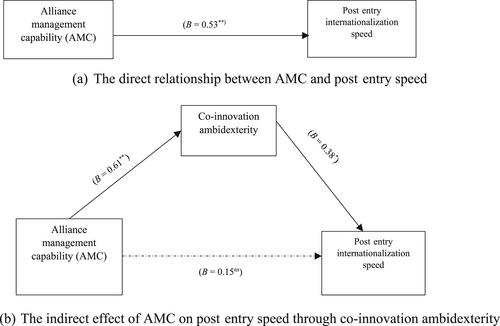This study delves into the relationship between alliance management capability (AMC) and the post-entry internationalization speed of small-sized and medium-sized enterprises (SMEs). We develop a novel theoretical framework that illuminates the effect of co-innovation ambidexterity as a mechanism that unlocks AMC value in speeding up SME internationalization following entry into foreign markets. To validate our framework, we conduct an empirical investigation using a sample of 278 UK-based manufacturing SMEs. Our findings support the proposition that co-innovation ambidexterity is a crucial mediating mechanism through which AMC boosts the post-entry internationalization speed of SMEs. Therefore, this research sheds new light on the critical roles of AMC and co-innovation ambidexterity during the post-entry stage, which has far-reaching implications for the fields of international entrepreneurship and international strategic alliances.
Internationalizing SMEs are increasingly forming alliances with the aim of accessing and leveraging external knowledge to tackle the challenges they typically encounter during post-entry phase. However, these alliances are difficult to establish and manage, which results in high failure rates. To address this lacuna, we argue that AMC and co-innovation ambidexterity facilitate the post-entry internationalization speed of SMEs. Using data from 278 UK-based manufacturing SMEs, we show that AMC is an important capability that allows SMEs to leverage and harness the knowledge of their alliances for co-innovation ambidexterity, which, in turn, increases their post-entry internationalization speed. Together, these findings provide important insights for those SMEs' managers who aim to develop effective strategies for rapid internationalization via strategic alliances.



